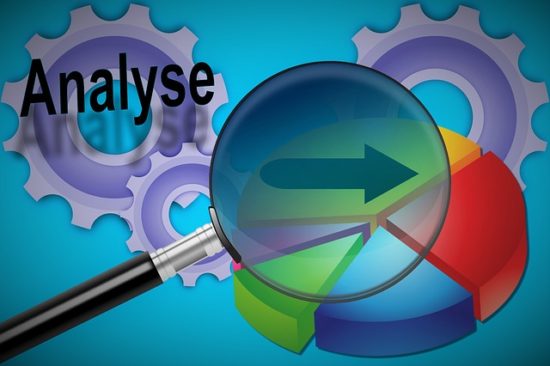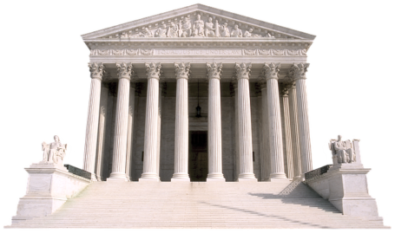Medicare beneficiaries have until Dec. 7 to change their Medicare health and prescription drug coverage for the coming year through annual open enrollment. Health and drug plans make changes every year, so experts say it’s wise to revisit your selections to see which plans match your needs when it comes to cost and coverage, as well as the providers and pharmacies that are in network. Additionally, you can switch from original Medicare, which is managed by the federal government, to a Medicare Advantage plan that is privately managed, or vice versa, during open enrollment. Changing to a different Medicare Advantage plan is also permitted during open enrollment. Keep reading for more details.
Read moreArticles
According to the Federal Reserve Bank of Dallas, Mexico has once again cemented its place as America's top trading partner, with $263 billion worth of goods passing between the two countries in the first four months of this year. Trade with Mexico accounted for 15.4% of goods exported and imported by the US, just ahead of America's trade totals with Canada and China, which were 15.2% and 12% respectively. Mexico's ability to take the top spot away from China — which had spent the last two decades integrating itself further into the US economy — is a clear sign of how the economic chaos of 2020 is set to continue to define the world economy for years to come. Nearshoring increased during the pandemic because of the increased cost of shipping products across the Pacific and the consumer demand for faster delivery times. Click below for the full article:
Read moreMichelle Ruddy owns a vacant plot of land in Asbury Park. From time to time, she gets inquiries about whether she would like to sell it. But she’s stuck, saying she’d like to build on it someday. Imagine the shock when she got a call from a lawyer who handled the closing of the land sale. “She asked me if I was Michelle Ruddy. I said yes. She said, ‘I want to make sure I mail your check for the sale of your property to the correct address,'” Ruddy said. “I hung up the phone thinking it was a hoax.” But it was not a hoax. It was a sophisticated fraudulent attempt to steal money from the sale. Click below for the rest of the story.
Read moreAs most of us know, people accidentally ruin their finances all the time. It’s unfortunate, but it happens. And it’s not something that only occurs with younger adults — even seniors often fall culprit to financial errors. If it’s easy for adults to make money mistakes, imagine how easy it could be for a college kid. Here are 13 potentially disastrous financial blunders you can help your college student avoid.
Read moreSpousal benefits are probably the most misunderstood Social Security benefit. Ex-spousal benefits may seem even more convoluted. Here is a summary of requirements to file for ex-spousal benefits. To be eligible to collect an ex-spousal benefit: (1) your ex-spouse must be living. (2) you need to be single, (3) you need to be at least 62, (4) you must have been married 10 years or more and (5) the ex-spousal benefit must be greater than your own worker benefit. Keep reading for additional considerations:
Read moreThe “Kiddie Tax” is a law that stipulates how investment and unearned income are treated for minors or full-time college students under the age of 24. Before the Kiddie Tax, parents could save on taxes by putting investment accounts in a child’s name. Parents would gift stocks and other assets to their children, and income earned on the assets would be taxed at the child’s (lower) income tax rate, instead of the parent’s (higher) income tax rate. The Kiddie Tax closed this loophole by taxing children’s passive income at higher rates. Keeping reading to find out the details.
Read moreAt nearly the midway point of the year, the S&P 500 Index has proven surprisingly resilient despite numerous headwinds, such as multiple Fed rate hikes and instability in the banking system. However, the S&P 500’s rally doesn’t necessarily match what’s going on inside diversified equity portfolios. While the S&P 500 is up 12%, 7 stocks – Alphabet, Amazon.com, Apple, Meta Platforms, Microsoft, NVIDIA, and Tesla – are up an average of 69.0 percent! The rest of the stocks in the S&P 500 are up only 2.5%, on average. It goes without saying that this is a whopping disparity. Investors with diversified portfolios [need patience] during this period of narrow leadership. We’re already seeing signs that market performance is starting to broaden out.
Read moreThere is a wrinkle in the federal tax code that can help heirs avoid or reduce taxes on inherited assets, which is known as "step-up in basis". A capital gain happens when you sell an asset for more than what it initially cost. A step-up in basis takes into consideration the fair market value of an asset when it was inherited rather than when it was acquired. This means there’s a “step-up” from the original value to the current market value. Conversely, if someone gives a gift to somebody during their lifetime, the recipient retains the basis of the person who made the gift, which is known as a “carryover basis.” Click below for more detail including some examples.
Read moreNational College Decision Day, also known as College Signing Day, is the first day of May each year. On this day, high school seniors who applied and were accepted into one or more colleges must confirm their enrollment with the school of their choice. This confirmation is usually attached to an enrollment deposit. It’s the culmination of your hard work and dedication researching schools, taking entrance exams, touring campuses, writing essays, submitting your applications, and eagerly awaiting acceptances. Keep reading for some tips on what comes next.
Read moreFirst came the good news. After taking classes at a community college, Ricki Korba was admitted to California State University, Bakersfield, as a transfer student. But when she logged on to her student account, she got a gut punch: Most of her previous classes wouldn’t count. Every year, hundreds of thousands of students start at community colleges hoping to transfer to a university later. It’s advertised as a cheaper path to a bachelor’s degree, an education hack in a world of ever-rising tuition costs. Yet the reality is rarely that simple. For some students, the transfer process becomes a maze so confusing it derails their college plans. Click below for the rest of the story.
Read moreWhy is Medicare so darn confusing? Let’s start with the basic rules. You become eligible for Medicare, the federal government’s health insurance programs for seniors, when you turn 65. Medicare includes Part A, which is premium-free and pays for most hospital costs, and Part B, which has a monthly premium and pays for most doctors’ fees and outpatient services. About half of retirees supplement original Medicare with a private Medigap policy, and in some cases, a Part D prescription drug plan. Others choose to bundle their Medicare services into a comprehensive Medicare Advantage plan, which may offer additional coverage, such as vision and dental care, in exchange for using a network of health care providers. Keep reading for more detail and information on initial, special, and annual general enrollment periods.
Read moreThe index gurus are at it again. Some of the best-known stocks are getting reclassified on Friday, and that means a lot of money is going to move around. Thirty years ago this would all have been of interest to academics, but almost no one else. That was before the triumph of indexing and exchange-traded funds. Every year in March, S&P and MSCI announce changes in the classification system. If you’re an investor in a broadly diversified total market index fund like the S&P 500, the changes will make little difference to you. The changes will be more significant if you trade sectors, which is an increasingly popular strategy. Click the link below to see details of this year's changes.
Read moreWhether you're a recent college grad or have spent some years working and saving, you might be thinking about making your first home purchase. But is now really the right time for you to step into the real estate market? Can you even afford a house purchase? When is the right time to buy a house? Keep reading for help making such a major decision.
Read moreIt is that time of year to consider making an IRA Contribution. You have until April 18, 2023 to make a contribution for 2022. You can also make your 2023 contribution at the same time.
Read moreThe SECURE 2.0 Act of 2022 includes almost 100 new retirement plan provisions, many of which aren’t effective yet. But some big changes involving required minimum distributions and related penalty relief are already in effect, The age for RMDs was increased from 72 to 73 in 2023, and then to 75 a decade later, in 2033. The 50% penalty for skipping your RMD was reduced to 25%, and to 10% if the missed RMD is made in a timely manner. A new statute of limitations now applies to missed RMDs (3 years) and excess IRA contributions (6 years). Starting in 2024, Roth 401ks will be exempt from RMDs making them similar to Roth IRAs. Click below for more detail on these changes.
Read moreOlder Americans started 2023 with a trifecta of good news: bigger Social Security benefits, lower Medicare premiums, and easier access to Medicare enrollment. Social Security benefits increased by 8.7% in January as a result of the largest cost-of-living adjustment in more than 40 years. It’s not necessary to claim Social Security benefits in 2023 to cash in on the huge annual increase. Anyone who’s 62 or older and eligible to receive Social Security in 2023, meaning anyone born in 1961 or earlier, will profit from the 8.7% COLA. Not only did Social Security benefits increase this year, but Medicare Part B premiums, which are usually deducted directly from Social Security payments, declined for the first time in more than a decade, Most Medicare beneficiaries pay the standard Part B premium of $164.90 per month in 2023, down slightly from the $170.10 per month they paid last year, but some high-income retirees pay more. New Medicare enrollment rules also took effect in 2023. Click to read more on these items as well as the New Medicare enrollment rules.
Read moreIf your small business kept employees on the payroll through the pandemic, you may be eligible for the Employee Retention Credit (ERTC). Launched in the early days of the COVID-19 pandemic as part of the CARES Act relief package, it was intended to provide extra incentive for smaller businesses to retain their employees, although it was widely overshadowed by the Payment Protection Program (PPP). The ERTC is still available retroactively for both 2020 and 2021. Determining eligibility can be tricky, especially if you applied for PPP loan forgiveness, so you should generally consult a tax professional for assistance. Click the following link for more detail on the ERTC.
Read moreMost people who invest in rental property do so with a profit motive, oftentimes raising the rents as high as they can in order to maximize their income. But in other situations, maximizing profits may not be the ultimate motive. Sometimes, a landlord may be willing to rent to a tenant at below fair market value. Examples include a parent renting a property to a child where the rent just covers the mortgage and utilities or when a landlord gives a deal to a friend. The IRS has very specific tax rules when it comes to below market rent.... and it generally isn't good. Click below for detail.
Read moreIf you are already on Medicare, now is the time to look at your options. You don’t need to take any action with your Medicare Advantage Plan or Traditional Medicare Part D prescription drug plan if you are happy with them. However, plans change every year so it’s worth confirming that your doctors, preferred pharmacies and other providers are still in network and that your medicines are still covered at the price you expect. You should also consider whether to switch from Traditional Medicare to Medicare Advantage. For more information, click below:
Read moreANCHOR, short for the Affordable New Jersey Communities for Homeowners and Renters, has replaced the NJ Homestead Rebate. ANCHOR is generally much more liberal than the NJ Homestead Rebate program is replaces. Homeowners making up to $250,000 per year and renters making up to $100,000 per year are now eligible for a rebate. The new program is still several years behind and is for tax year 2019. The deadline for filing your ANCHOR benefit application is December 30, 2022 so you need to act soon!
Read moreIn pre-pandemic years, Labor Day sales events offered generous discounts on new cars as dealerships aimed to clear out current-year models and start selling the next year’s versions. These days? Not so much. “Shoppers waiting for Labor Day sales events with substantial discounts on outgoing model-year vehicles will be frustrated by the lack of markdowns and choice of vehicles,” said Thomas King, president of the data and analytics division at J.D. Power, in the report. At least there is evidence used car prices are starting to soften.
Read moreI've been suggesting excess be used cash to buy I Bonds for several months… but what about the far more popular sibling EE Bonds? I don't usually recommend either type of US Savings Bond because their interest rates are fairly low and you have to buy them through an account at TreasuryDirect, which is somewhat cumbersome. However, the interest rate on I Bonds is based on inflation, which has been at multi-decade highs, so I Bonds look quite attractive today. John Rekenthaler, a columnist for Morningstar, compares both types of bonds and reaches a similar conclusion.
Read moreBull markets can run for a long time—but they can't run forever. And when a bull stops running, it's better to be prepared than surprised. Is your portfolio ready? Get prepared with these seven investing tips.
Read moreQuestion - My dad has terminal cancer. I am his oldest daughter and also the product of his first and only marriage. I have a younger sister and he was never married to her mother. My father always said I would inherit his house once he passed away, but he changed his mind after I spent several years in prison. Now he won’t give me a clear answer. My sister is already in charge of his house, car and bank account. Do I have any rights given that I was the product of a marriage and she wasn’t? And what about my parents divorce decree? I believe it said I was to be left the house and he was to pay child support to my mother, which he never paid and she never pursued. He was also supposed to put me through college and that never happened, either. What can I do, if anything? Click the link below for the answer.
Read morein the spring or summer and you’re sure to find plenty of garage sales. Selling your unwanted stuff is a great way to make some extra cash. But if you’re not savvy about the tricks of yard sale con artists, you could end up at a loss. Here are 9 garage sale scams to arm against
Read moreA Qualified Charitable Distribution (QCD) is a tax-free withdrawal from an Individual Retirement Account (IRA) that is made directly to a qualifying charity. It is a popular way to do good while also satisfying the Required Minimum Distribution (RMD) requirement. For IRA owners with charitable intentions, a QCD offers substantial tax benefits, but timing is everything! For those eligible to make a QCD, the timing of your QCD must be coordinated with your RMD. Keep reading for details.
Read moreDo you have a college student who just graduated? Congratulations! Now it’s time to study up on the best way to pay off those student loans. Federal student loans come with benefits such as flexible payments, forgiveness and forbearance or deferment so they should be evaluated separately from other types of loans. Should you focus on paying off high-interest loans first or paying as little as possible? What about using a loan consolidator to refinance the debt? While not addressed in the following article, please keep in mind that student loan repayment, interest, and collections are paused through August 31, 2022 as part of Covid relief and rumors are swirling that the Biden administration is planning to cancel $10,000 in student debt per borrower.
Read moreInflation is higher than it's been in decades, which is creating an interesting opportunity to invest in US I Bonds. I Bonds are a special type of US Savings Bond that earn interest based on combining a fixed rate and a variable inflation rate that gets announced every 6 months. Historically low yielding, I Bonds are currently paying 9.62% annual interest through October. This is a fantastic rate for a low risk bond! Depending on your situation, I bonds may be a good place to park cash or become part of your bond portfolio. Before rushing out to buy them, know that there is a $10,000 per person annual purchase limit, you can’t touch the money for at least 12 months, and there’s a penalty for selling within five years. Additionally, you can only buy them in electronic form through an account with the US Treasury, known as TreasuryDirect. Keep reading for more information.
Read moreIf your tax bill was higher than anticipated, it could be due to the Net Investment Income Tax (NIIT). NIIT is a tax on investment income, such as interest, dividends, and capital gains. Importantly, it is a 3.8% surtax, meaning it is an extra tax on top of other taxes that may be owed on your investment income. For instance, qualified dividends and capital gains are generally taxed at 15%, but the rate for those subject to the NIIT will essentially be 18.8%. NIIT only applies if your modified adjusted gross income (MAGI) is more than a certain threshold - $200,000 (single taxpayer) or $250,000 (joint taxpayer). This is not a new tax - it has been in effect since 2013! Continue reading for more details.
Read moreIt might come as a surprise to learn that you’re technically an employer if you pay someone to watch your kids or to clean your home. If a household worker is classified as your employee, you will owe tax, often referred to as the “nanny” tax. IRS guidelines for what makes a household worker an employee are pretty simple - if you control what work is performed and how they do it, they are employees. However, if the worker is an employee of an agency, the agency pays the tax, and if the worker is classified as an independent contractor, he/she is responsible for the tax. Keep reading to find out what is involved if you have a household employee and need to pay the nanny tax.
Read moreIt is that time of year to consider making an IRA Contribution. You have until April 15, 2022 to make a contribution for 2021. You can also make your 2022 contribution at the same time.
Read moreThe Criminal Investigation unit of the Internal Revenue Service has 20 field offices located across the U.S. and 11 attaché posts abroad. According to IRS-CI chief Jim Lee, the top 10 cases of 2021 have all the makings of a made for TV movie — embezzlement of funds from a nonprofit, a family fraud ring that stole millions in COVID-relief funds and a $1 billion Ponzi scheme used to buy sports teams and luxury vehicles.
Read moreThe IRS closed 452,515 individual audits during its fiscal 2020. This represents less than 1% of individual income tax returns filed, so the chances of an audit are slim. However, there are several reasons why your return may get flagged, triggering an IRS notice, tax experts say. Red flags may include excessive write-offs compared with income, unreported earnings, refundable tax credits and more. Crypto trades may also draw scrutiny.
Read moreYou might need to take a little extra time in 2022 to plan your required minimum distributions (RMDs) from IRAs, 401(k)s, and other qualified retirement plans. The starting age was changed from 70 1/2 to 72 and how RMDs get calculated for inherited IRAs changed for year 2020. This year, the life expectancy tables were changed. The new tables have slightly longer life expectancies than the old tables, making RMDs a little bit lower under the new tables than the old ones. This change is easy enough for IRA owners over age 72, but for those who inherited an IRA prior to 2020 (and have been calculating RMDs under the old rules), it is more complicated. Click the link to learn more:
Read moreI was named a Five Star Wealth Manager in NJ again in 2022! Less than 7% of advisors were named this year and this marks my eighth time winning this award. As in prior years, Five Star Professional partnered with New Jersey Monthly magazine and all award-winners were listed in a special section of the January issue. For more information on the Five Star award and the research/selection methodology, please visit my spotlight page:
Read moreCharitable giving can make good financial sense for retirees, both wealthy ones and those of more modest means. As retirees think about their charitable-giving strategies for 2021 and beyond, here are some key considerations. For Smaller Givers: Take Advantage of the Deduction Available for Nonitemizers. for Midsize Givers: Use Qualified Charitable Distributions. For Larger Givers: Donate Highly Appreciated Assets From Taxable Accounts. Click below for the full article.
Read moreNearly a decade ago, the State of California, under then-Attorney General Kamala Harris, began requiring nonprofits incorporated and/or registered in the state to submit Schedule B of IRS Form 990 along with its other required annual filings. Schedule B is a listing of donors giving more than $5,000 per year to a nonprofit. Under federal law, Schedule B is not subject to public disclosure, but the State of California’s law made the information contained in it public anyway. In a 6-3 vote, the US Supreme Court handed California a loss in what is considered a landmark case of lasting reach. The majority found that California’s donor disclosure requirement was unconstitutional, and violated First Amendment guarantees of free speech and free association. States will no longer have the ability to go on fishing expeditions, casting a wide net over donor activity in search of a violation. It's a victory for individual liberty and donor privacy. Click below for the full article.
Read moreMillions of employees are sifting through their workplace benefits before their employer’s open enrollment deadline. One of the biggest questions they will settle is whether to join their partner’s benefits plan or keep benefits separate. With rising inflation and pandemic-related health costs, couples should take a strategic approach to open enrollment this year to make sure their benefits square with their money goals, say financial planners. Some may find it pays to keep their benefits relatively separate from their partner’s, while others could save significantly by analyzing costs.
Read moreThe idea of making money on the side from owning a rental property can be very appealing, especially if you view the venture as a possible way to quit your day job eventually or subsidize your income when you retire. But becoming a landlord is not for the faint of heart. Nor is it guaranteed to be profitable right away. A lot goes into making it so over time. To see if you're cut out for the challenge, here are four questions to ask yourself before getting into the business (and it is a business) of being a landlord.
Read moreWhile matrimony is traditionally a joyous time, marriage and domestic partnership can affect taxes, retirement savings and financial planning goals. Remarriage situations present even more complex challenges, especially if a blended family is involved. Click below for a slide show of 10 important tax and financial planning questions related to marriage, divorce, remarriage and blended families according to ALM’s Tax Facts Online.
Read moreDespite surging covid cases and climbing inflation, Americans’ retirement account balances continue to rise to record levels. Others, though, are fighting to pay rent — unable even to think about investing for the future. Let’s look at the "haves" who are saving for retirement in workplace plans. Workers who continue to contribute to their plans were rewarded with significant increases in their account balances, according to Fidelity, the largest administrator of workplace retirement accounts. The average 401(k) balance increased to a high of $129,300 in the second quarter of 2021, up 24 percent from the same period a year ago. The number of workers with accounts of $1 million or more also increased to record levels.
Read moreAs you save for retirement, it’s beneficial to know how much to save and whether you’re on the right track. Everyone’s situation is different, of course, but there are some useful retirement benchmarks that can give you a sense of how you’re doing to reach your goals. What is a good retirement savings goal? Many financial institutions and experts have a few guidelines to help answer that question. Keep reading to learn a few of these guidelines and don't forget that hiring a good financial adviser could be useful, too!
Read moreGovernor Phil Murphy recently signed the Fiscal Year 2022 Appropriations Act into law, which included several provisions that will make college more affordable for some NJ taxpayers. The Act creates new tax deductions for households with income below $200,000, who will be able to deduct their first $10,000 in contributions to an NJBEST 529 savings plan, $10,000 in in-state tuition payments and $2,500 in NJCLASS student loan payments. Additionally, NJ taxpayers with annual income under $75,000 will get a matching contribution up to $750 for contributions into the NJ 529 plan. NJ is now among 35 states to offer a tax deduction for 529 contributions and among 15 states to offer a matching contribution. Also, NJ's Community College Opportunity Grant (CCOG) currently offers residents with income under $65,000 free tuition for two years at an in-state community college and the Act extends this benefit to a student’s 3rd and 4th year at a 4-yr in-state college.
Read moreA scholarship available to students who attend New Jersey colleges and contribute to the NJ 529 (NJBEST) was recently doubled from $1,500 to $3,000. To be eligible for the full scholarship, the NJBEST account must be open for at least 12 years and received at least $3,600 in contributions according to the new regulations approved by the state Higher Education Student Assistance Authority board. The scholarship is not available to students who attend an out-of-state college. Unlike other state scholarships, the NJBEST scholarship is not funded by taxpayers. - it is funded by the fees investors pay to maintain the NJBEST accounts. Under a law Gov. Phil Murphy signed last year, the scholarship is available in any term that a student enrolls at a NJ higher education institution — not just during a student’s freshman year.
Read moreIn mid-April I picked my 15-year-old daughter and her friend up from school and took them to Barnes & Noble. The friend found out that I “do stocks” for a living and immediately asked me about crypto. What cryptocurrency should I buy, she asked. I’ll tell you about the advice I gave her in a bit. But not long after I got three calls in one day from my wife’s side of the family—from my sister-in-law (a pharmacist) and my wife’s cousins (both are barbers). They were all asking me about crypto. Click below to keep reading.
Read moreWhen you think back on this spring, you may fondly recall a substantial deposit made to your bank account by the federal government (if you were eligible). Economic Impact Payments were a focal point of the American Rescue Plan Act (ARPA), signed into law in March, and the payments were even larger for parents with dependent children. Keep reading to find out 2 other ARPA provisions that can really benefit parents.
Read moreWe usually associate spring cleaning with clearing out old items in your house that are unnecessary to make room for the new. This is also an amazing time to take care of your financial house and clean out unnecessary expenses in your budget. Keep reading for a few tips to get started putting some expenses in the trash.
Read moreNew Jersey has implemented a new law mandating both for-profit and non-profit employers with 25+ employees provide a retirement plan for their employees. Instead of establishing a 401k, Simple IRA, or SEP IRA, employers can comply by participating in the new state-run plan, called The New Jersey Secure Choice program. The law was originally passed into law in 2019 with an effective date of March 2021 and an implementation deadline of Dec. 2021. Whether these dates gets extended due to the Covid-19 pandemic is uncertain so employers need to be prepared. Click below for more details.
Read moreThe $1.9 trillion Covid relief measure tweaked the child tax credit, earned income credit, and child and dependent care credit. The changes are mostly aimed at lower earners and only apply to tax season next year (for 2021 income). The pandemic aid law also lets households claim a Recovery Rebate Credit to collect any outstanding funds from stimulus checks. Here’s what taxpayers need to know.
Read moreShutdowns, layoffs and salary cuts brought on by the coronavirus pandemic have left millions of Americans searching for new sources of income. Those who’ve recently turned to gig work may be weeks away from a financial surprise in the form of unexpected tax bills and insurance coverage fine print.
Read more















































